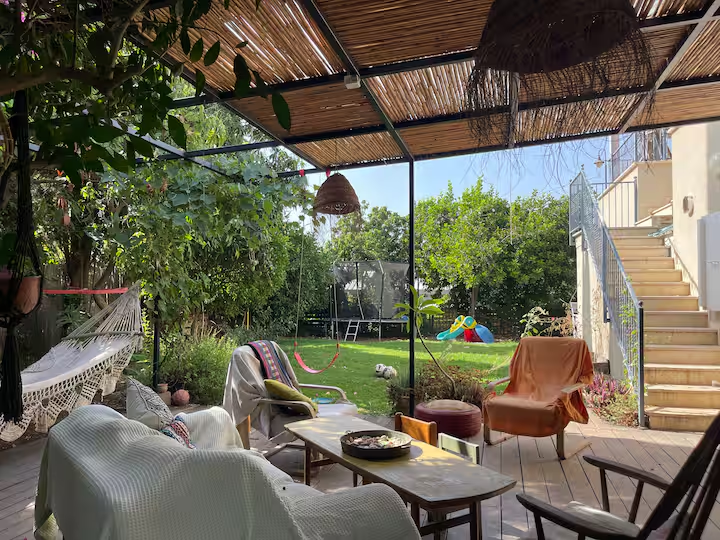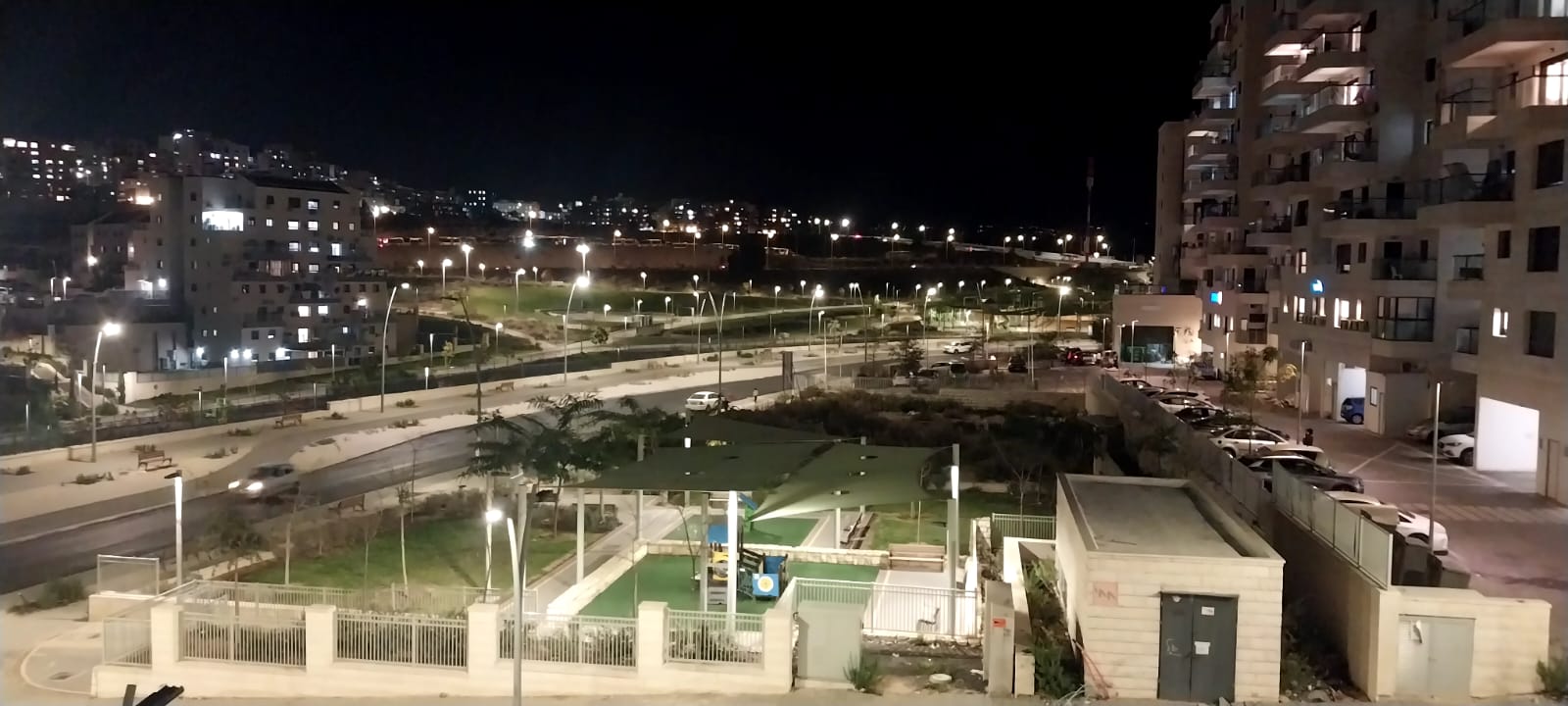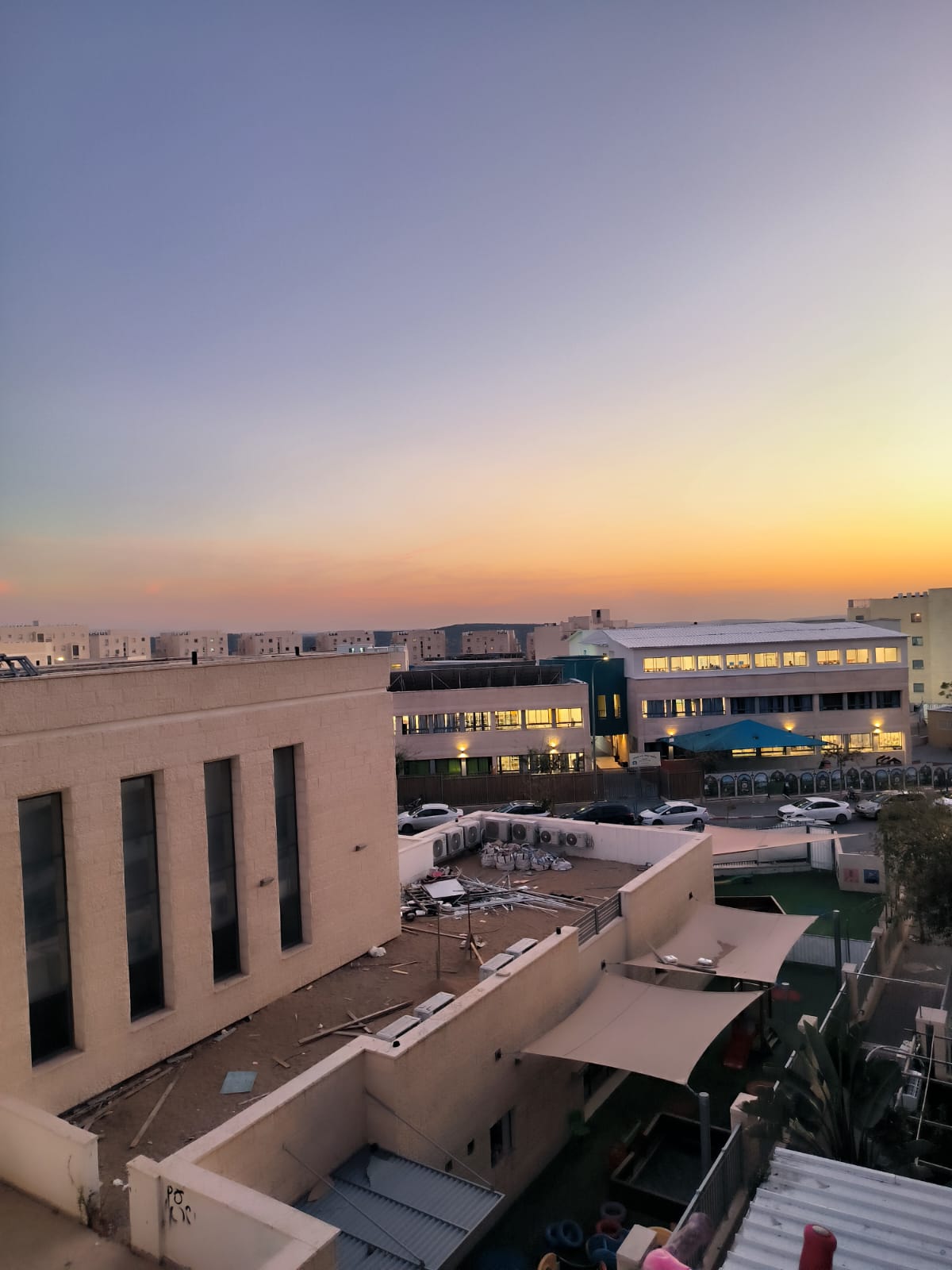Your Step-by-Step Blueprint for a Successful and Profitable Property Purchase in the Holy Land
Table of Contents
Why Consider Investing in Israeli Real Estate?
(An Overview of the Benefits and Unique Advantages)
Investing in Israeli real estate is about much more than simply buying a property—it’s about tapping into one of the world’s most dynamic markets, driven by:
- Booming Tech Sector: Israel’s thriving “Startup Nation” environment keeps demand for housing and commercial spaces consistently high.
- Strong Economy: With a resilient GDP and stable governance, property values have historically trended upward.
- High Demand vs. Limited Land: Land is limited—especially in prime urban centers—helping support property prices over the long term.
- Attractive Rental Returns: Major cities like Tel Aviv and Jerusalem often yield compelling rental rates, appealing to buy-to-let investors.
Stay with us because up next, we’ll unravel the entire roadmap from finding the perfect home or commercial space to understanding taxes, mortgages, and more. You don’t want to miss these insider tips that can save you time, money, and headaches!
Legal Framework and Property Ownership
(Know Your Rights Before You Sign Anything)
Eligibility
- Good News: Foreigners are generally permitted to purchase property in Israel, enjoying rights close to those of Israeli citizens.
- Land Ownership Structure: Around 93% of land is state-owned and administered by the Israel Land Authority (ILA). In many cases, you lease the land for 49 or 99 years. However, foreigners are often more comfortable buying property on privately owned land (the remaining ~7%), where you can own the land outright instead of leasing.
Key Legal Notes
- No Special Approval Needed: Most foreign nationals don’t require extra authorization from the government, with a few exceptions in sensitive or strategic areas.
- Lease vs. Private Ownership: If you’re buying on state-owned land, you’re essentially purchasing the structure plus a long-term lease. With private land, you own both the land and the property in perpetuity.
Pro Tip: Before you assume a property is freehold or leasehold, ask your lawyer to verify whether the land is privately owned or managed by the ILA.
Types of Properties Available
(From Cozy Apartments to Luxury Beachfront Villas)
- Residential Properties
- Apartments: Standard housing in cities like Tel Aviv, Jerusalem, Haifa, and Netanya.
- Condos and Villas: Great for both personal use and short-term rentals (especially near tourist areas).
- Commercial Properties
- Office Spaces & Coworking Hubs: Especially hot in Tel Aviv’s tech corridor or Jerusalem’s business districts.
- Retail Centers & Malls: Look for locations with planned infrastructure improvements to boost traffic and rental yields.
- Industrial Facilities & Warehouses: Steadily increasing demand, particularly near major ports and logistics routes.
- Land / Plots
- Privately Owned Land: Ideal if you plan on building or developing.
- Agricultural Land: Often has more restrictions for foreign buyers—consult with local attorneys to confirm usage rights.
Keep reading to discover how financing these properties works. Even if you plan to buy with cash, there might be mortgage benefits you don’t want to miss!
Financing Options and Mortgages
(Yes, You Can Get a Mortgage in Israel as a Foreigner!)
- Local Mortgages for Non-Residents: Israeli banks often grant mortgages to foreign investors, although you’ll typically face:
- Higher Down Payments: Often around 50% of the property’s value.
- Potentially Higher Interest Rates: Rates may be slightly above those for Israeli citizens.
- Required Documentation:
- Proof of Income (payslips, tax returns, or bank statements from your home country).
- Israeli Bank Account (makes transactions and monthly mortgage payments simpler).
- Credit History (overseas credit checks or references).
- Loan-to-Value (LTV) Ratios: Expect an LTV ratio of around 50%–60% for foreign buyers. You’ll need to make up the difference in cash or collateral.
- Pro Tip for Americans: Check if your Israeli bank has a branch in the U.S. or vice versa. A local relationship can ease cross-border banking complexity and compliance.
Navigating the Legal Process
(From Due Diligence to Closing the Deal)
- Hire a Local Real Estate Attorney
- They’ll guide you through verifying ownership, drafting or reviewing contracts, and ensuring compliance with Israeli real estate laws.
- Preliminary Agreement / Memorandum of Understanding (MoU)
- Once you find a property, you may sign an MoU and put down a deposit (commonly 5–10% of the purchase price).
- This step holds the property while your attorney completes due diligence.
- Formal Purchase Agreement (Heskem Menayot)
- Outlines purchase price, payment schedules, property condition, and contingencies.
- Important: This is a binding contract once signed by both parties.
- Registration (Tabu)
- After the final payment, ownership must be registered at the Israel Land Registry (Tabu).
- If the property is on state-owned land, the lease rights must be registered with the ILA.
Pause and reflect: Don’t let registration delays trip you up. Confirm your lawyer handles it promptly to avoid future legal complications.
Tax Implications for Foreign Buyers
(Nobody Likes Surprises—Especially Tax Surprises!)
- Purchase Tax (Mas Rechisha)
- For foreigners, purchase tax starts at 8% (for most non-resident buyers) and can go up to 10% on higher-value properties.
- A rough bracket example:
- Up to approx. ILS 5.3 million: 8%
- Above that threshold: 10%
- Capital Gains Tax (Mas Shevach)
- Typically 25% on the profit when you sell.
- Might be reduced if you own the property for a longer period or if specific tax treaties apply.
- Rental Income Tax
- Potentially 10% on gross rental income if you opt for the “flat tax” route.
- Some deductions may apply based on relevant tax treaties.
- Value Added Tax (VAT)
- Applies mainly to new property purchases from developers, currently around 17%.
- Municipal Taxes (Arnona)
- Paid to local municipalities, based on property size, location, and usage.
- Rates vary widely among cities.
“Did you know that if you’re making Aliyah (immigrating to Israel under the Law of Return), you might qualify for a reduced purchase tax rate on your first property?”
Market Insights: Hotspots & Emerging Areas
(Where Should You Invest for the Best Returns?)
- Tel Aviv: Israel’s financial, cultural, and tech heart. Pricey, but yields can be high.
- Jerusalem: Rich in history, attracting a steady flow of tourists and religious visitors seeking rentals.
- Haifa: A blend of industrial ports, growing tech scene, and scenic views. More affordable than Tel Aviv.
- Herzliya Pituach: Luxe coastal living with premium prices; popular among expats.
- Netanya: Known for its beaches, increasingly sought by retirees and second-home buyers.
- Be’er Sheva & Southern Cities: Rapidly expanding, especially with new infrastructure and relocation of IDF bases.
Still reading? Great! Next, we’ll show you exactly how to find a property that fits your goals (and your wallet).
How to Find the Right Property
(Because the Perfect Location Can Make or Break Your Investment)
- Online Portals
- Hebrew Sites (e.g., Homeless.co.il, Madlan.co.il)
- English-Friendly Portals (Some websites offer English versions to help foreigners browse listings.)
- Real Estate Agents
- Look for agencies specializing in foreign buyers—ask for references.
- Confirm they’re licensed and have a solid track record in your desired city/neighborhood.
- Property Tours
- In-person visits are best. But if that’s not possible, virtual tours with a reliable local contact can be a game-changer.
- Off-Plan Developments
- Buying “on paper” (before construction is finished) can often secure a lower price.
- Warning: Do extra due diligence on the developer’s reputation and timeline reliability.
- Local Forums & Groups
- Expat communities on social media can provide invaluable tips and leads on properties for sale.
Essential Due Diligence Checklist
(Don’t Skip These Steps!)
- Title Search:
- Confirm the seller has legal ownership (check for liens, mortgage encumbrances, or unresolved inheritance issues).
- Land Survey & Zoning:
- Ensure the property’s boundaries match official records.
- Verify zoning laws, especially if you plan on renovations or development.
- Building Permits:
- If purchasing in a new development, ensure the contractor has all necessary permits.
- Look out for any “building irregularities” that might complicate future resale or expansions.
- Financial Liabilities:
- Check for unpaid municipal taxes, homeowner association fees, or unregistered loans.
- Condition of Property:
- Professional inspection to assess structural integrity, electricity, plumbing, etc.
Pro Tip: Thorough due diligence can prevent costly legal disputes and ensure a smooth transaction.
Professional Assistance: Who You Need on Your Team
(Assembling the Perfect “Dream Team” for a Hassle-Free Purchase)
- Real Estate Attorney
- Key role in verifying documents, drafting contracts, and guiding you through legal complexities.
- Licensed Real Estate Agent
- Vital for local market insights, property visits, and price negotiation.
- Mortgage Broker
- Helps compare different banks and mortgage terms to secure the best financing deal.
- Tax Advisor / Accountant
- Ensures you understand purchase tax, capital gains tax, and potential double taxation issues.
- Property Inspector / Surveyor
- Identifies issues with the property to avoid nasty surprises post-purchase.
Practical Tips and Common Pitfalls
(Learn from Others’ Mistakes to Avoid Making Your Own)
- Pitfall #1: Not factoring in hidden costs (legal fees, purchase tax, renovation, etc.).
- Pitfall #2: Skipping professional help—Israeli real estate laws differ from those in other countries.
- Pitfall #3: Ignoring local culture and location nuances. Buying a home in a strictly religious neighborhood could be problematic if you plan to live a secular lifestyle, and vice versa.
- Pitfall #4: Relying on verbal promises from sellers or developers. Everything must be in writing.
- Tip: Negotiate fearlessly but respectfully. Israeli sellers often expect a certain amount of haggling.
Pause for a moment. Can you imagine how much smoother your purchase will be if you dodge these pitfalls?
Quick FAQs Answered
- Can foreigners buy real estate in Israel?
Absolutely—foreigners generally have similar property rights as Israeli citizens. - How much is the typical down payment for a mortgage?
Often around 50% for foreign buyers. - Is it better to buy new construction or existing homes?
Depends on your risk appetite. New construction can offer lower pre-construction prices but requires careful vetting of the developer. - Do I need to become a resident of Israel to own property?
No. Residency is not a requirement. - How do I pay property taxes if I don’t live in Israel year-round?
An Israeli bank account plus an online payment portal or local agent can handle ongoing municipal taxes (Arnona).
Conclusion & Next Steps
Investing in Israeli real estate as a foreigner can be a highly rewarding endeavor, both financially and personally. By combining:
- Thorough research
- Qualified professional assistance
- Diligent due diligence
You’ll be better positioned to navigate everything from the legal intricacies to market trends. Whether you’re eyeing a high-rise condo in Tel Aviv, a serene property in the Jerusalem hills, or a seaside villa in Herzliya, the key is planning carefully, asking questions, and taking each step with confidence.
Your Next Move?
- Reach out to an Israeli real estate lawyer and an accountant who specialize in helping foreign investors.
- Secure your mortgage pre-approval if financing is needed.
- Start shortlisting potential neighborhoods and properties that match your goals.
Remember, while the journey can be complex, the rewards often match—or even surpass—the effort.
References and Further Reading
- Israel Land Authority (ILA): https://land.gov.il
- Israeli Ministry of Finance: https://mof.gov.il
- Nefesh B’Nefesh (Aliyah Resources): https://www.nbn.org.il
- Global Property Guide on Israel: https://www.globalpropertyguide.com
- Aharoni Law Firm (Real Estate in Israel): https://aharonilaw.com
- Sands of Wealth (Buying Property as a Foreigner): https://sandsofwealth.com
- Semerenko Group (Real Estate & Mortgages): https://semerenkogroup.com
Liked this guide?
Bookmark it, share it with a friend, or refer back anytime you need a quick refresher. Investing in another country may feel overwhelming at first, but you’re far from alone in this journey. By building a trusted network and staying informed, you can make a sound, confident purchase—and maybe even enjoy life by the Mediterranean while you’re at it!
Ready to take the plunge? Your journey to owning Israeli property begins now.







